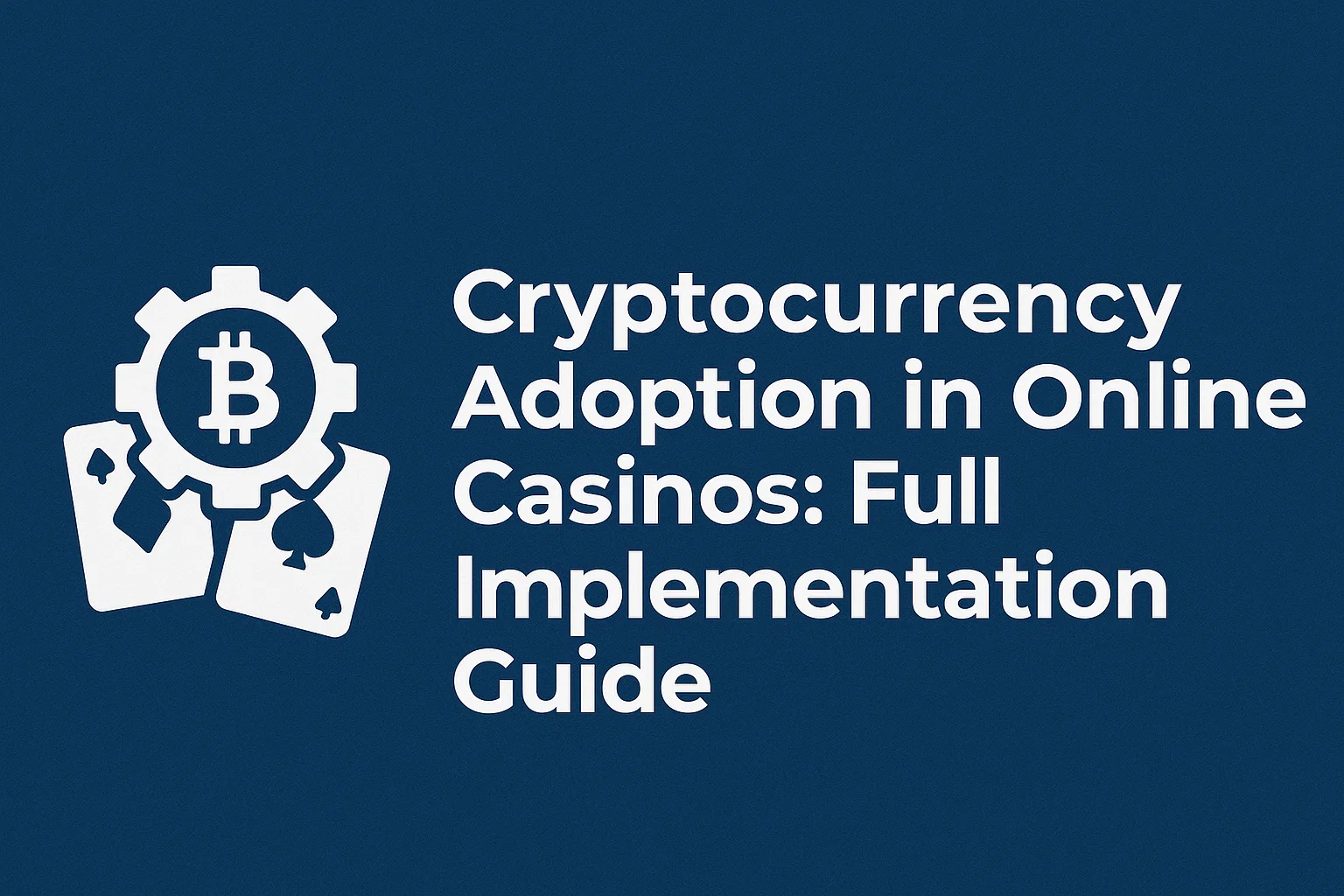Cryptocurrency Adoption in Online Casinos: Full Implementation Guide

The iGaming space is moving fast to adopt cryptocurrency, and with crypto casino bets reaching $26 billion in Q1 alone, almost doubling year on year, the message is out: operators that fail to adopt digital currency integration are watching their peers reap rewards from the fastest-growing sector in online gaming.
And far more significantly, the global crypto casino market has broken out of $50 million to $250 million, with a phenomenal 38% compound annual growth rate. Whilst traditional online casinos continue to struggle with the same payment processor problems, best crypto casinos are preparing for withdrawals in less than 5 minutes.
But what most operators miss is that crypto casino integration is about more than adding Bitcoin as a payment method. It's also about radically reengineering how players engage with your site, from provably fair gaming to real-time settlements that eliminate the friction that drives players away.
The Crypto Casino Revolution: More Than Payment Processing
The shift towards cryptocurrency in internet gaming is all about filling the inherent problems that have plagued the industry since its inception: trust, transparency, and transaction speed.
Traditional casinos require players to believe them. Crypto casinos allow players to check everything for themselves. Every spin, every wager, every result is recorded immutably on the blockchain. Players can personally confirm fairness through cryptographic proofs, ending the "just trust us" bias that has fueled distrust in online gaming for decades.
The technical underpinning is more important than most appreciate. Blockchain technology employs cryptographic hashing to provide tamper-proof records of each transaction. Each bet is timestamped and attached to the last transaction to form an unbreakable chain of verification. When players are able to verify the fairness of each game result in real-time, trust then becomes mathematical and not emotional.
Speed of transaction separates the winners from the losers. whereas the traditional payment processors keep withdrawals for 24-72 hours, crypto transactions are usually completed between 2-8 minutes. Some of the sites are pushing this even further, with withdrawals occurring as quickly as 4.9 minutes. Much more than a nicety, speed of transaction is soon to be the bare minimum expected of new players.
Understanding the Crypto Casino Ecosystem
The crypto casino ecosystem operates on multiple layers, and all of them play different roles in the gamification process. Understanding those layers is the key to proper application.
Layer 1: Blockchain Infrastructure
The foundation is blockchain networks which conduct transaction processing. Bitcoin remains dominant in crypto bets but is losing market share as faster alternatives develop. Ethereum sees the most casino deposits, and TRON dominates raw transaction volume.
Solana is quickly emerging as a contender, especially for micro-transactions requiring high-speed applications. Its speed of processing and low fee make it ideally suited to high-frequency betting scenarios. The blockchain choice affects all from the cost of the transaction to the settlement speed, making it one of the most critical technical decisions in crypto casino deployment.
Layer 2: Smart Contract Systems
Smart contracts execute game logic and payouts automatically without any human action. Such autonomous contracts remove the requirement of conventional payment processors and save operational expenses by a wide margin. More significantly, they facilitate provably fair gaming where players can ensure that results were not tampered with.
Smart contract deployment requires utmost care regarding gas prices, execution time, and security reviews. Optimized smart contract platforms are capable of processing thousands of transactions per second in a transparent and equitable manner.
Layer 3: Wallet Integration
New crypto casinos accommodate a variety of wallet types, ranging from hot wallets for ease of use to cold storage for safety. The best-performing platforms natively support top wallets such as MetaMask, Trust Wallet, and WalletConnect. It enables players to connect and begin playing within minutes.
Wallet integration affects players' experience more than operators realize. Smooth wallet integrations reduce friction, while complex setup processes deter players. The best implementations allow players to link their existing wallets without creating new accounts or undergoing lengthy verification processes.
Technical Implementation: Building Your Crypto Casino Infrastructure
Establishing a winning crypto casino requires more than merely introducing Bitcoin support to an incumbent platform. It entails a fundamental overhaul of system design, security measures, and user interface design.
Selecting Your Technical Stack
Blockchain Selection Strategy
- Your choice of blockchain networks will directly impact user experience as well as operational costs.
- Bitcoin enjoys highest recognition and trust but is slow to perform transactions and has high fees, thus not very suitable for high-frequency games.
- Ethereum possesses extremely robust smart contract features but suffers from scalability problems when networks become crowded.
TRON has gained popularity due to its low fees and fast processing, particularly for stablecoin transactions. Solana offers low fees and fast processing, which is appropriate for micro-betting scenarios. Most successful platforms support multiple blockchains, so users can choose based on fee tolerance and preference.
Smart Contract Architecture
Smart contracts are at the heart of crypto casino functionality, ranging from game logic to payout distribution. The architecture must balance transparency against performance and maintain security standards.
Random Number Generation (RNG) for smart contracts is especially significant. Traditional RNG mechanisms rely on central servers, whereas crypto casinos utilize blockchain randomness that can be verified independently by players. This "provably fair" mechanism relies on cryptographic hashing to ensure that results are indeed random and not tamperable.
Payment Gateway Integration
State-of-the-art crypto payment gateways like B2BinPay, CoinGate, and XAIGATE offer great solutions for managing various cryptocurrencies. These platforms offer the technical sophistication of dealing with blockchain without revealing APIs for platform integration.
The best payment gateways are pre-installed with functionalities like automatic currency conversion, exchange rates in real time, and acceptance of 100+ cryptocurrencies. They also offer compliance solutions for KYC/AML requirements and tax reporting.
